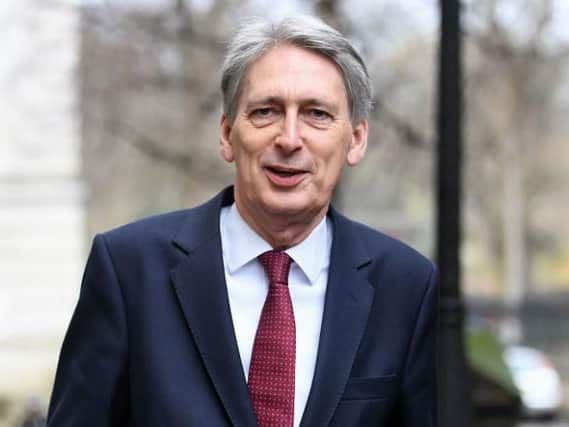Iain Wright: My three concerns about latest Budget


At the time of writing we have just learned that the Government has u-turned on the £2billion rise in National Insurance Contributions announced only a week ago, which will now not go ahead.
I made a speech yesterday in the ongoing Budget debate, highlighting three major concerns I have about the Chancellor’s statement and the direction of the economy under this Government.
Advertisement
Hide AdAdvertisement
Hide AdThe first was on the position of the national debt. In 2010 the Government had expected public sector net debt to be falling as a share of GDP by 2015, but in fact it has risen in every year that the Conservatives have been in Government.
It is forecast to rise again throughout this Parliament, to £1.9trillion meaning that in little over a decade in Government the Conservatives will have increased public sector debt by 146 per cent, to almost £2trillion.
The reason we should ideally have debt make up a low and falling proportion of GDP is to provide some scope to absorb the impact of any future economic shock.
That was the case with the Labour Government in the run-up to the 2008 crash and in many respects it was the case with the Thatcher Government before the recession of the early 1990s.
Advertisement
Hide AdAdvertisement
Hide AdBut this Government is failing to do the same thing: we will hit any economic turbulence or downturn with public sector debt being about 80 to 85 per cent of GDP.
That does not give us the flexibility to be able to respond and help firms and families in a robust and strong way.
My second point was about the nature of the economic recovery.
It is true to say that the British economy has performed well by some headline measures; the UK was the fastest-growing G7 economy last year.
Advertisement
Hide AdAdvertisement
Hide AdHowever, if we scratch beneath the surface, it is questionable precisely who is benefiting from that growth.
The UK has been the only big advanced economy in which wages have contracted while the economy has expanded.
Households are facing a period of 15 years in which average real wage growth simply does not happen.
My third point is that we need a new model for the economy.
Advertisement
Hide AdAdvertisement
Hide AdTo be fair to the Prime Minister, she said when she first came into Number 10 that she wanted to see an economy that worked for everyone, and that she wanted to see private sector reform to ensure that growth was rebalanced and reached all parts of the UK.
However, that is not what we saw in last week’s Budget.
The Government have referred to an industrial strategy as the path by which such growth could be achieved, yet the Chancellor failed to mention the term “industrial strategy” once in his financial statement, which demonstrates the buy-in from the Treasury to the concept.
We talk about rebalancing across the regions, but as a north-eastern MP, I could find no reference whatever to the north in the Budget statement.
I would have liked to see a more ambitious, mission-based approach in which the Government, working with business, set a long-term direction for the economy in the pursuit of tackling global and national challenges.
Advertisement
Hide AdAdvertisement
Hide AdWhere in the Budget was the vision on decarbonisation? Where in the Budget was the ambition to be the leading economy to exploit the fourth industrial revolution?
Sadly, we got the same short-term tinkering, which will not address issues such as low productivity, skills deficiencies and massive regional imbalances.
If the Prime Minister is serious about an economy that works for everyone, we need to see a step change in the way the economy works.
An industrial strategy could be the means by which we achieve that but, sadly, in this Budget all we got was business as usual.